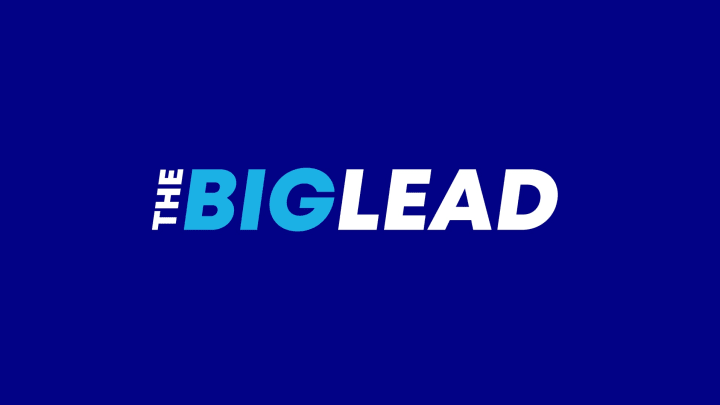ESPN's Auburn Synthetic Reefer Madness Report Has Some Major Flaws [UPDATE]
By Ty Duffy

ESPN the Magazine is sounding the marijuana war drums again. Last year, it was Oregon. This year the school with the “epidemic” is Auburn and the cannabis is synthetic. “The Mag” contends that Auburn engaged in a “cover up” to mask positive tests for synthetic marijuana in January 2011.
A six-month investigation by ESPN The Magazine and “E:60” into the spread of synthetic marijuana at Auburn reveals that a dozen students on the football team, including its star running back, Michael Dyer, failed tests for the designer drug. The investigation also found that because the school did not implement testing for the drug until after it won the national championship in January 2011, as many as a dozen other seniors who used synthetic marijuana were never caught.
Synthetic cannabinoids were not illegal then. Alabama did not outlaw it until October 2011. They were also not part of Auburn’s drug policy until August 2011, the same time the NCAA’s policy went into effect. This is a “failed drug test” for drugs that were (a) legal and (b) not listed on the school’s banned substances policy. There was no competitive issue and the time frame did not affect any games played.
Auburn, according to Rivals, was participating in clinical trials to help develop a test for the drug. Auburn started the tests three days after they became available, on Jan. 24. The twelve positives mentioned by ESPN were during those trials. Testing at that stage was still imperfect. Auburn could not tell if it was catching repeat offenders with weekly tests or recurring positives from the same usage (hence the guy who tested positive seven times).
The initial tests simply indicated the presence of “spice” in the bloodstream. It couldn’t discern the levels of substance, meaning a single use could trigger positive tests for a period of up to three weeks.
Auburn didn’t feel comfortable punishing athletes without the ability to know if use was a one-time experimentation or a serial behavior. The department continued to educate athletes about the risks of using “spice” and waited for a better test that would help identify changes in usage.
Auburn began using the fully operational test when it became available in August 2011, which explains the lag between the positive tests and enforcement. ESPN’s report claims Auburn did not notify parents about the positive tests. The Rivals’ site has two parents affirming they were notified by coaches about positive tests. Auburn’s official statement asserts parents mentioned in the ESPN piece were contacted about positive tests by both phone and written correspondence.
We would dispute the merit of schools testing “students” for recreational drug use at all. But, beyond that debate, it’s not clear what Auburn did wrong.
UPDATE: Here is a response from ESPN PR.
“ESPN The Magazine stands by its reporting on the Auburn story (http://es.pn/16wYndx), a process conducted over six months and including more than 30 interviews. Contrary to other suggestions, JWH-018 (Spice) has been illegal to possess in the state of Alabama since the Alabama Synthetic Marijuana law was enacted July 1, 2010: http://bit.ly/YXosSB(2010-717). Additionally, during that same month a test for the drug was made available to the general public:. http://bit.ly/10EIHSm.”
Here is a response to ESPN PR:
Alabama did pass a synthetic marijuana law on July 1, 2010. Because of a loophole, manufacturers were able to skirt around the law. Such products were not removed from store shelves until an emergency order was passed in October 14, 2011. Had this product not been on store shelves, giving stores a 10-day grace period to remove said product from their store shelves would not have been necessary.
Auburn contends they inquired about a test with their drug testing company in the Fall of 2010 and were told one wasn’t available. They implemented it three days after the company had a preliminary one in January 2011. This was for a drug that (a) any player could have walked into a store and bought and (b) was not on the NCAA or Auburn’s banned substances list. If accurate, that is a reasonable course of action. It is more proactive than they were required to be.
ESPN’s contention is that Auburn was derelict because the school should have known there was an “epidemic” of synthetic marijuana use (12 players failed the test, a figure lower than the 26.7 percent of college football players who admit marijuana use) when they weren’t testing and should have scoured the rest of the country to find another testing agency to conduct the tests immediately. That is an unfair criticism.
Criticize a school for not meeting its obligations. You can’t criticize a school credibly for failing to go well beyond its obligations. Especially when there were none. There is no prescribed standard of conduct to which one could compare Auburn’s handling of synthetic marijuana. The article mentions no comparison to how any other school handled synthetic marijuana. However long it took and however many interviews were conducted, this piece is a scandalous, empty headline devoid of coherent logic for its existence.